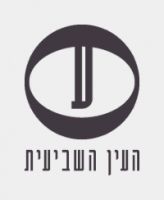The prime minister’s gravest allegation against those working against his re-election is that they are trying to raise voter participation among Arab citizens of Israel. ‘Israel Hayom,’ meanwhile, has decided that Arab voters’ opinions just don’t count.
By Oren Persico

“Millions of shekels from overseas — to raise voter participation for the Left and the Arabs,” was the main headline last week on Israel Hayom, the newspaper funded by millions of shekels from overseas. The headline was a quote from an interview with Prime Minister Benjamin Netanyahu the newspaper’s edition that day.
Not the danger of Iranian nuclear proliferation, not the controversy surrounding Netanyahu’s Congress speech, not criticism of Netanyahu’s political challengers Isaac Herzog or Tzipi Livni. Of all the quotes in the interview, Israel Hayom’s editors (read more about the newspapers ties to the prime minister here) chose to focus on the warning about high voter turnout among leftists and Arabs.
The quote in the main headline of the newspaper, which is distributed for free to over half a million people, summarizes the prime minister’s long answer to the question of whether Herzog and Livni will become prime ministers in a rotation agreement:
There is a coalition being driven by hidden actors, whose goal is to oust the Likud from power and to replace it with a left-wing government. This is not the “just not Bibi” coalition, which we are familiar with. I’m talking about other forces, much larger, that include millions of shekels from overseas, along with consultants and others in order to accomplish two things: to raise turnout among voters on the Left on a much larger scale than what exists today, and massive turnout among Arab voters [on election day].
These are well-funded organizations that can bring the number of Arab [Knesset] seats up to 16 and decide the elections. The strategy is clear: bring leftist voters to the polls and to raise voter participation in the Arab public to unprecedented levels. That’s how they believe they can break the Likud’s rule and boost the left-wing parties. That’s the main effort, the hidden [effort], of the most significant influence, which has already affected the polls. It presents a very real danger that the Likud and I might not lead the next government.
[Livni] and [Herzog] are first of all hiding Livni and after that they are hiding the rotation [agreement]. Together they are going into a coalition propped up by Arab votes. That is the biggest change taking place here. The only way to stop it is massive turnout on the other side of the [political] map — by Likud voters and my supporters. That’s how we can stop their efforts to thin out the Likud’s support to the Right, to the “social” parties and to the Left, sweepingly, because of the Arabs. As a result of the campaign to increase voter turnout among the Arabs and leftists, which is funded by millions of dollars flowing from leftists overseas, there is a real danger that the Likud and the Right will be kicked out of power. The polls show the Likud smaller, and the leftist parties, including the Arabs and Lapid, are growing. The only way to prevent the formation of a leftist government is a massive turnout by Likud voters on election day, March 17.
Recoiling at high voter turnout among non-Jewish Israeli citizens is understandable at Israel Hayom, the newspaper that doesn’t see them as equal citizens with equal rights. In fact, the publication quite regularly revokes their right to express their opinion.
A day earlier, the newspaper published results from a poll conducted by New Wave Research on its behalf. According to the results published in Israel Hayom, the public opinion poll “was conducted between March 4 and March 15 among a random representative sample of 624 interviewees from the entire Israeli population over the age of 18.” A day earlier Israel Hayom also published the results of a survey conducted on its behalf by New Wave, conducted between March 4 and March 15, which were highlighted on the top headline of the front page. That survey, however, as published in Israel Hayom, was conducted “among a random representative sample of 500 interviewees from the Jewish, Hebrew-speaking public over the age of 18.”
In other words, the research institute conducted a poll using a sample that represents the entire Israeli population, Jews and non-Jews alike. But some of the questions were asked only of Jews (or, more degrading, all of the questions were asked of all the respondents but their answers were later removed), and thus the democratic survey became an apartheid poll.
According to last week’s Israel Hayom, Arab citizens of Israel are allowed to say what party they plan on voting for; they are allowed to answer, “who do you think is best suited to be the prime minister of Israel”; they are allowed to answer whether they consider themselves “right” or “left”; but under no circumstances do they have the right to to express whether “the prime minister’s decision to speak to Congress was the right or wrong move?” or “who do you trust or value more when it comes to addressing the Iranian nuclear threat?”
As usual, it wasn’t enough for Israel Hayom to revoke non-Jews’ freedom of opinion and mislead their readers (including the Arabs among them). “46 percent of the public: The trip to Congress — the right move,” was that day’s headline. Except they are only talking about 46 percent of only the Jewish public, which comprises 80 percent of the country’s citizens. “At least according to the voting public in Israel, Prime Minister Benjamin Netanyahu’s decision to speak in the U.S. Congress was correct,” the lede of the article said of the poll, despite the fact that it really referred only to Jewish voters.
In communications studies, the term “symbolic annihilation” is used to describe the under-representation of specific population segments, but in the case of Israel Hayom’s survey, we can make due with a lesson in statistics. The margin of error in the survey conducted among Jews only is +/- 4.4 percent, according to New Wave Research. The margin of error for the broader sample, which included 124 non-Jews, is half a percentage point smaller, at +/- 3.9 percent. What newspaper editor — who aspires to give their readers the most accurate information — would prefer to publish poll results with a higher margin of error? What editor would choose a more faulty poll, statistically speaking, and one whose results ignore the views of citizens whose only crime is being Muslim and Christian?


